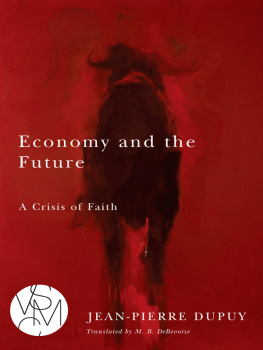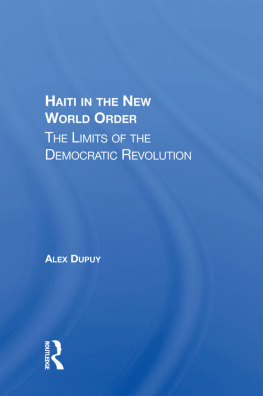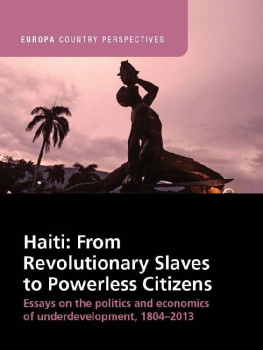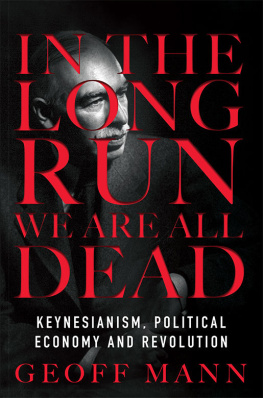Studies in Violence, Mimesis, and Culture
SERIES EDITOR
William A. Johnsen
The Studies in Violence, Mimesis, and Culture Series examines issues related to the nexus of violence and religion in the genesis and maintenance of culture. It furthers the agenda of the Colloquium on Violence and Religion, an international association that draws inspiration from Ren Girard's mimetic hypothesis on the relationship between violence and religion, elaborated in a stunning series of books he has written over the last forty years. Readers interested in this area of research can also look to the association's journal, Contagion: Journal of Violence, Mimesis, and Culture.
EDITORIAL ASSISTANT
Esra Genc Arvas
ADVISORY BOARD
Ren Girard, Stanford University
Andrew McKenna, Loyola University of Chicago
Raymund Schwager, University of Innsbruck
James Williams, Syracuse University
EDITORIAL BOARD
Rebecca Adams, Independent Scholar
Mark Anspach, cole Polytechnique, Paris
Pierpaolo Antonello, University of Cambridge
Ann Astell, University of Notre Dame
Cesreo Bandera, University of North Carolina
Maria Stella Barberi, Universit di Messina
Alexei Bodrov, St. Andrew's Biblical Theological Institute, Moscow
Joo Cezar de Castro Rocha, Universidade do Estado do Rio de Janeiro
Benot Chantre, L'association Recherches Mimtiques
Diana Culbertson, Kent State University
Paul Dumouchel, Ritsumeikan University
Jean-Pierre Dupuy, Stanford University, cole Polytechnique
Giuseppe Fornari, Universit degli studi di Bergamo
Eric Gans, University of California, Los Angeles
Sandor Goodhart, Purdue University
Robert Hamerton-Kelly, Stanford University
Hans Jensen, Aarhus University, Denmark
Mark Juergensmeyer, University of California, Santa Barbara
Cheryl Kirk-Duggan, Shaw University
Michael Kirwan, SJ, Heythrop College, University of London
Paisley Livingston, Lingnan University, Hong Kong
Charles Mabee, Ecumenical Theological Seminary, Detroit
Jzef Niewiadomski, Universitt Innsbruck
Wolfgang Palaver, Universitt Innsbruck
Martha Reineke, University of Northern Iowa
Tobin Siebers, University of Michigan
Thee Smith, Emory University
Mark Wallace, Swarthmore College
Eugene Webb, University of Washington
Copyright 2014 by Michigan State University; L'Avenir de l'conomie: Sortir de l'conomystification copyright 2012 by Flammarion
 The paper used in this publication meets the minimum requirements of ANSl/NlSO Z39.48-1992 (R 1997) (Permanence of Paper).
The paper used in this publication meets the minimum requirements of ANSl/NlSO Z39.48-1992 (R 1997) (Permanence of Paper).

Michigan State University Press
East Lansing, Michigan 48823-5245
Printed and bound in the United States of America.
20 19 18 17 16 15 14 1 2 3 4 5 6 7 8 9 10
LIBRARY OF CONGRESS CONTROL NUMBER: 2014936109
ISBN: 978-1-61186-146-4 (pbk.)
ISBN: 978-1-60917-433-0 (ebook: PDF)
ISBN: 978-1-62895-033-5 (ebook: ePub)
ISBN: 978-1-62896-032-7 (ebook: Mobi/prc)
Book design and composition by Charlie Sharp, Sharp Designs, Lansing, Michigan Cover design by David Drummond, Salamander Design, www.salamanderhill.com Cover image is Bull (oil on canvas) by Cacouault, Daniel (Contemporary Artist)/Private Collection/The Bridgeman Art Library. Used with permission.

Michigan State University Press is a member of the Green Press Initiative and is committed to developing and encouraging ecologically responsible publishing practices. For more information about the Green Press Initiative and the use of recycled paper in book publishing, please visit www.greenpressinitiative.org.
Visit Michigan State University Press at www.msupress.org
Time is the substance of which I am made.
Time is a river that carries me away, but I am the river;
it is a tiger that tears me apart, but I am the tiger;
it is a fire that consumes me, but I am the fire.
Jorge Luis Borges, A New Refutation of Time
INTRODUCTION
The Bewilderment of Politics
A sense of shame led me to write this book. Shame at seeing politics allow itself to be humiliated by economics, at seeing political authority disgraced by managerialism, by the cult of business management.
Authority, managerialismthese are abstractions. A somewhat ridiculous allegorical image comes to mind: the sovereign people, pictured in the same manner as the multitude of citizens that fills out the body of Leviathan in the frontispiece to the first edition of Hobbes's famous work of that name, only now the giant figure has lost his crown and bows his head before the chief executive officer of the realm. At least a part of this imagethe giant's head, the political class, composed of the men and women who have chosen to serve the stateis not allegorical, however. What could this plural form, the markets, really signify, if not the manifold and intertwining tentacles of a great monster, sluggish, craven, and dumb, which takes fright at the slightest noiseand in this way brings about the very thing that it shrinks from in terror: turbulence in the global markets?
Setting aside this rather fantastic image, what are we left with? Men and women in positions of power who, by prostrating themselves before a phantasm, transform it into something real and, at the same time, endow it with extraordinary power. For the market (as the markets are often called, by way of shorthand) resembles another monster, the one that roams a distant planet colonized by human scientists in Fred M. Wilcox's cinematic masterpiece of science fiction, a projection of Dr. Morbius's own subconscious. This today is the lot of politics: to battle against an army of nightmarish shadowsnot in a dream, but in the real world.
The future head of the Italian government, Mario Monti, appealed to the markets yesterday for a bit of time in order to form a cabinet and to implement an austerity program. He announced that Italians might have to make sacrifices once he had taken the oath of office and put his program into effect. His appointment was welcomed by the markets, but anxiety persisted and soon regained the upper hand.number of victims they have demanded. Is there anyone who does not see that these infamous terms are borrowed from the most primitive conception of the sacred, and constitute an incomprehensible retreat from the most fundamental values of modern democracy?
But the capitulation of politics to economics is still more contemptible than this. When a ruling party warns that the markets would countermand the will of the people if the opposition were to come to power and punish the country by plunging it into catastrophe; when a country sure of its economic superiority uses the pressure exerted by the markets to make an example of its neighbors, disciplining them like so many naughty schoolchildren; when the prospect of a referendum in the country where democracy was invented raises the specter of popular revolt there, and throws governments elsewhere in Europe into a panicin every case it is the political class that kneels before the titans of finance and makes itself their lackey. Every time the political class avows its determination to take on the markets and congratulates itself for having avoided the worst, at least for the moment, authority places itself on the same level as managerialism: whether it wins or loses does not matter, for it has already debased itself, and will go on debasing itself, by virtue of its very willingness to fight, like a teacher who lowers himself to trade blows with unruly students.














 The paper used in this publication meets the minimum requirements of ANSl/NlSO Z39.48-1992 (R 1997) (Permanence of Paper).
The paper used in this publication meets the minimum requirements of ANSl/NlSO Z39.48-1992 (R 1997) (Permanence of Paper).
